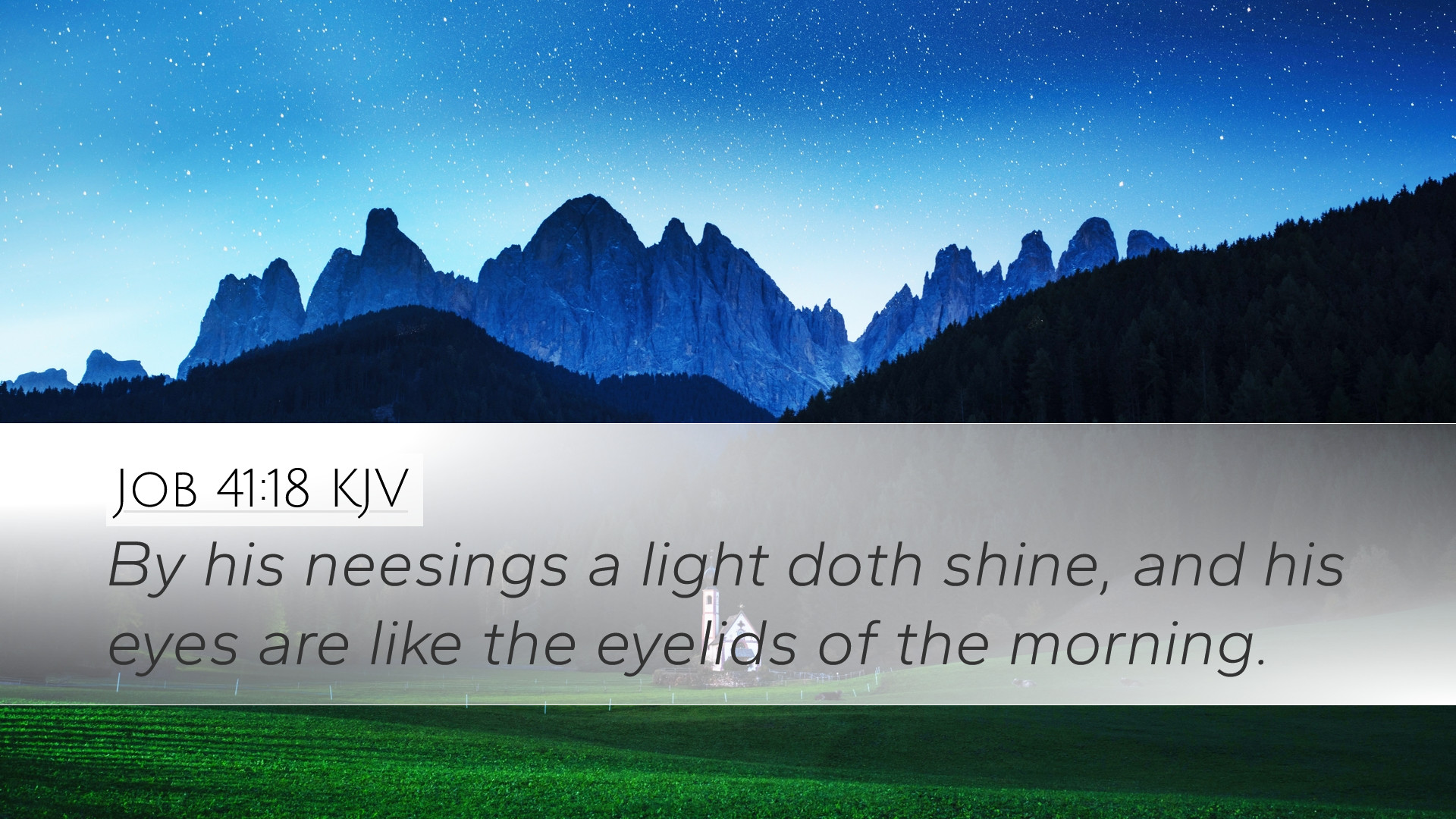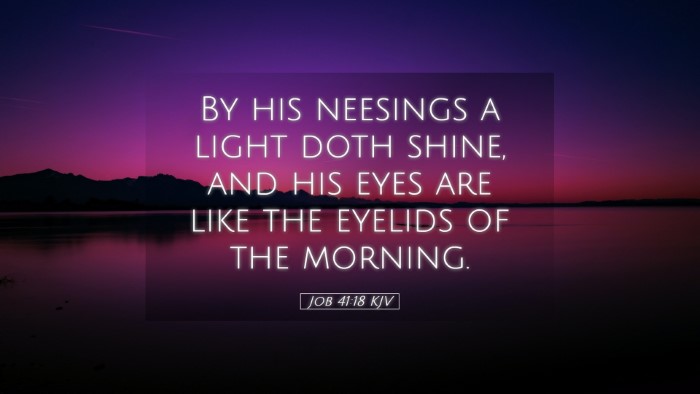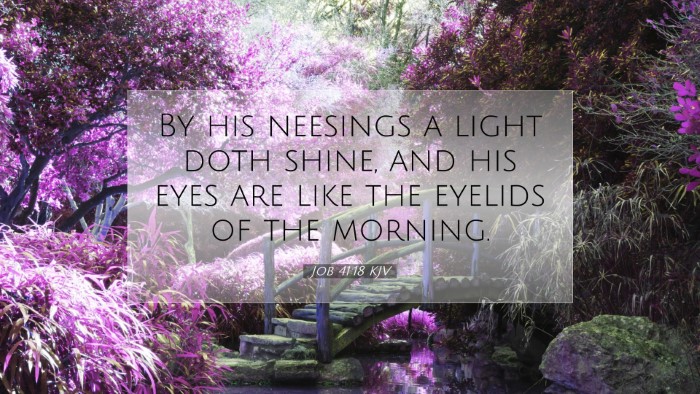Commentary on Job 41:18
Introduction
Job 41:18 presents a unique and rich metaphorical image that has been the subject of much theological reflection. The verse is part of God's discourse to Job, highlighting the majesty and terrifying power of Leviathan, which is often interpreted variously as a mythical creature or a symbol of chaos and evil. This commentary combines insights from notable public domain sources to understand the implications of this verse, particularly in light of God's sovereignty and the human condition.
Text of Job 41:18
“His sneezings flash forth light, and his eyes are like the eyelids of the morning.” (Job 41:18, KJV)
Exegesis and Meaning
The verse portrays an image of Leviathan, whose very sneezes are likened to flashes of light, a representation of immense power and ferocity. Spanning across various commentaries, we can draw several insights.
- Matthew Henry: Henry discusses the representation of Leviathan as a creature of immense strength, illustrating the carelessness with which humans often approach the concept of divine power and chaos. He notes the fearsome aspects of creation, juxtaposing human fragility against this fearsome beast.
- Albert Barnes: Barnes emphasizes the bright and sudden nature of light that is illustrated by the creature’s sneezes. He suggests that this metaphor reflects not only the uncontrollable nature of Leviathan but also the unpredictability of divine judgment—an aspect that should instill a sense of reverent fear in humanity.
- Adam Clarke: Clarke elaborates on the vivid imagery, connecting it to the idea of divine authority. His analysis points out that the eyes of Leviathan represent watchfulness and danger, implying that God’s almighty power is ever-seeing, watching over the world with a mixture of compassion and judgment.
Theological Implications
This verse is rich with theological significance. The description of Leviathan serves as a reminder of God's creative power and the complexities of His creation.
- Divine Sovereignty: The vivid imagery of Leviathan signals God's ultimate authority over even the most chaotic and fearsome aspects of the universe. Job, in his suffering, is reminded that God reigns supreme over all things, and that what appears chaotic is, in fact, under divine control.
- Human Limitations: Through this metaphor, we are also reminded of our limitations and frailty. The fearsome nature of Leviathan invites contemplation on human vulnerability, particularly when faced with trials and adversity, echoing Job's plight.
- Reverence in Worship: The imagery compels us to approach God with a sense of reverence. Understanding the nature of Leviathan leads to a broader understanding of how we ought to view God—not merely as a benevolent figure but as the Holy One whose presence can invoke both awe and fear.
Practical Applications
For pastors, theologians, and students, this verse has practical applications in sermons and teachings.
- Encouragement in Trials: Pastoral messages can utilize this imagery to comfort congregants during tribulations by reminding them of the greatness of God’s power over their situations.
- Awareness of God’s Presence: In relating to this text, believers can be encouraged to maintain an awareness of God's omnipotent watchfulness, intuitively inviting a deeper spiritual discipline and prayer life.
- Call to Humility: The commentary on Leviathan serves as a stark reminder of human limitations. When teaching, this image can provoke self-reflection regarding our positions before God, instilling humility and dependence on His grace.
Conclusion
Job 41:18 presents a poignant portrayal of Leviathan, encapsulating themes of divine power, human frailty, and the necessity of reverence in our relationship with God. By integrating insights from various public domain commentators, we see the depth and breadth of meaning that emerges from a careful examination of this verse. Its implications stretch far beyond Job’s immediate experience, inviting all readers to reflect on the complex interplay of suffering, divine sovereignty, and the profound mysteries of faith.


